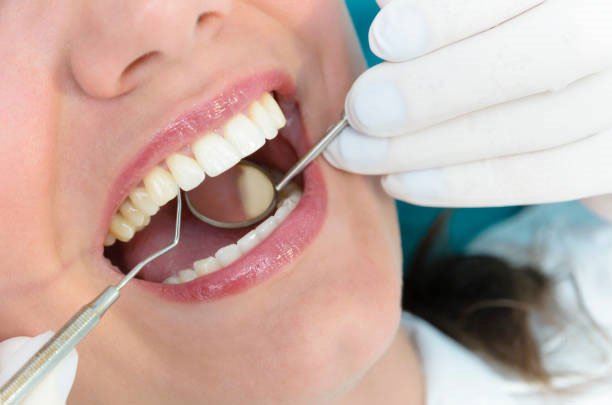What You Need to Know About Gum Disease
Gum disease — officially known as periodontal disease – is an infection of the gums supporting your teeth and is one of the major causes of tooth loss in adults. Yet because it is often painless at first, you may not even know you have gum disease.
When you visit your dentist near Gurnee, as part of your overall dental exam, the dentist or dental hygienist will measure the depth of the shallow, v-shaped crevice where the tooth meets the gum, called the sulcus. This measurement is used to determine how healthy your gums are.

The Stages of Gum Disease
Periodontal disease is classified according to its severity, and there are two major classifications or stages - gingivitis and periodontitis.
- Gingivitis – This is the earliest stage of gum disease and is characterized by swollen and red gum tissue. The gums may also bleed easily, especially when you brush or floss your teeth. At this stage, the disease is still reversible and can be treated by your dentist, along with following a strict oral hygiene routine at home.
- Periodontitis – In this second and more serious stage of gum disease, the gums and bone supporting your teeth become damaged, and you are likely to suffer tissue and bone loss. While normally healthy gum tissue and jawbone serves to anchor your teeth in place, severely infected gums can cause teeth to become loose and fall out, or require removal.
Tooth Loss and the Risk of Dementia and Other Health Problems
Without meaning to be overly alarmist, it should be noted that a recent study involving slightly over 34,000 participants, took place at New York University Rory Meyers College of Nursing and was conducted by researchers wanting to see if there’s a connection between tooth loss, the number of teeth lost, and cognitive decline and dementia.
They found that tooth loss was associated with a 1.48 times greater risk of cognitive decline and a 1.28 times greater risk of dementia. And for every tooth lost, an individual had a 1.4% greater risk of cognitive decline and a 1.1% greater risk of developing dementia.
The NYU researchers concede it is not clear exactly what mechanism is behind the seeming connection between tooth loss, cognitive decline and dementia, and much more research is needed. But if nothing else, their preliminary findings should provide added impetus for taking good care of your gums and teeth.
The bacteria associated with gum disease has also been implicated in an increased risk for heart disease and stroke, as well as other inflammatory processes. In short, prioritizing your oral health and reducing gum inflammation can go a long way to helping you live a healthier life overall.

Risk Factors for Gum Disease
With these sobering facts in mind, the following are among the most common risk factors for developing gum disease.
- Smoking or chewing tobacco
- System-wide diseases such as diabetes
- Some medications, including steroids, some types of anti-epilepsy drugs, cancer therapy drugs, some calcium channel blockers and oral contraceptives
- Dental bridges
- Crooked teeth
- Defective dental fillings
- Pregnancy
Symptoms of Gum Disease
The most common warning signs and symptoms include:
- Swollen, red, or tender gums
- Gums that bleed easily
- Gums that have pulled away from the teeth
- Persistent bad breath or bad taste
- Pus between teeth and gums
- Permanent teeth that are loose or separating
- Changes in the way your teeth fit together when you bite
- Any change in the fit of dentures
Prevention and Treatment
The best way to prevent gum disease is to maintain a basic, daily oral hygiene routine that includes twice daily brushing and flossing once each day. This will help keep plaque from forming and causing irritation and inflammation under the gumline. However, it is important to remember that brushing usually only reaches 25% of your mouth, so it can be helpful to follow up brushing and flossing with a good antiseptic mouthwash.
The prevention of gum disease also involves seeing your dentist at least once every six months for a professional cleaning and examination. These professional cleanings remove plaque below the gum line, helping to prevent gum disease. Additionally, the exam will provide your dentist the opportunity to detect signs of gum disease even before you’re aware of them.
Final Thoughts
In the final analysis, you don’t need to lose any teeth due to gum disease. Brush and floss daily, schedule regular dental checkups and cleanings, and eat a balanced diet for your best chance for a lifetime of beautiful smiles.
Whether you want to schedule a routine cleaning and exam, or you experience a dental emergency and need an emergency dentist in Gurnee, we will provide you the professional care you expect at Excellence in Dentistry. We invite you to call us at 847-244-4000 to schedule your appointment.
